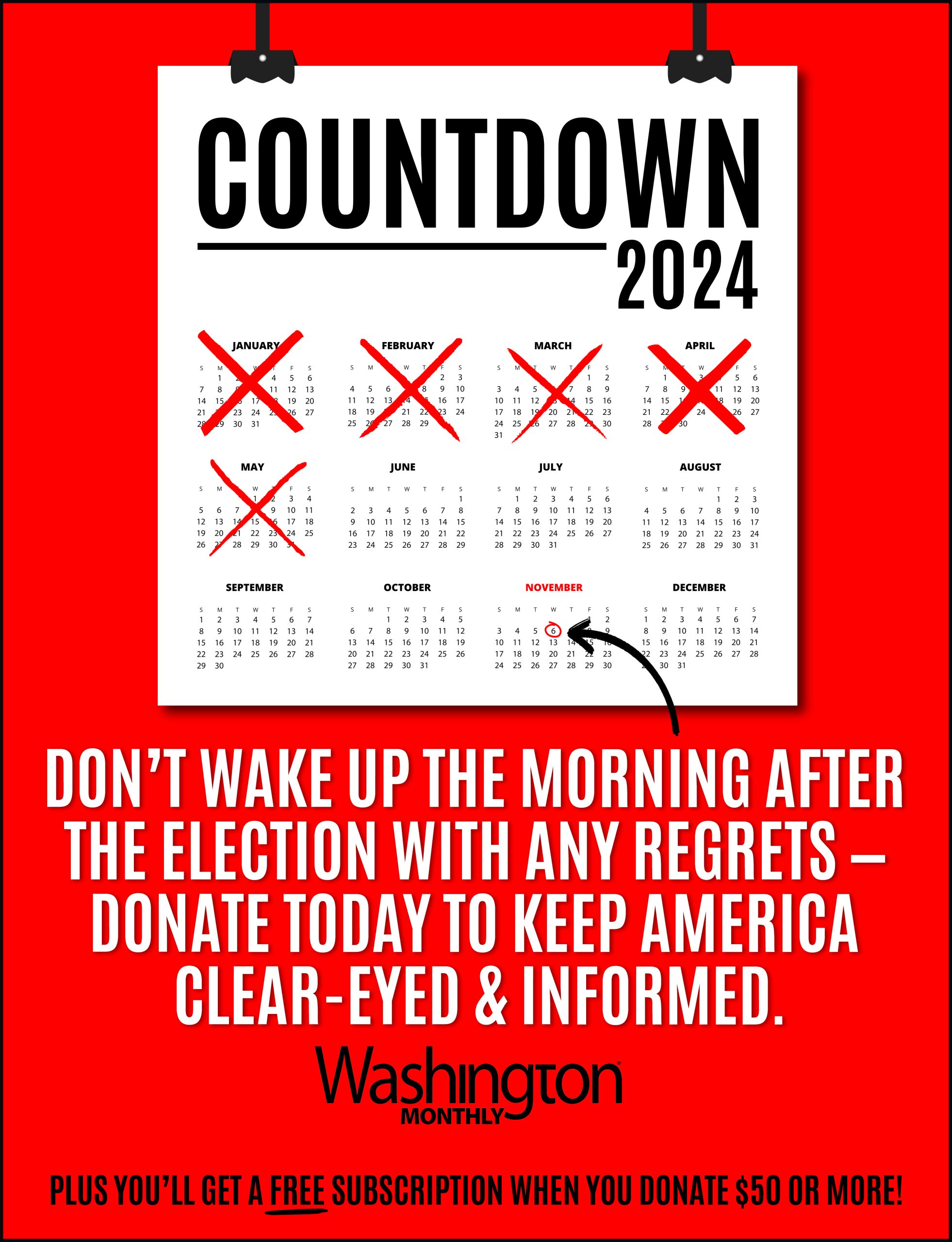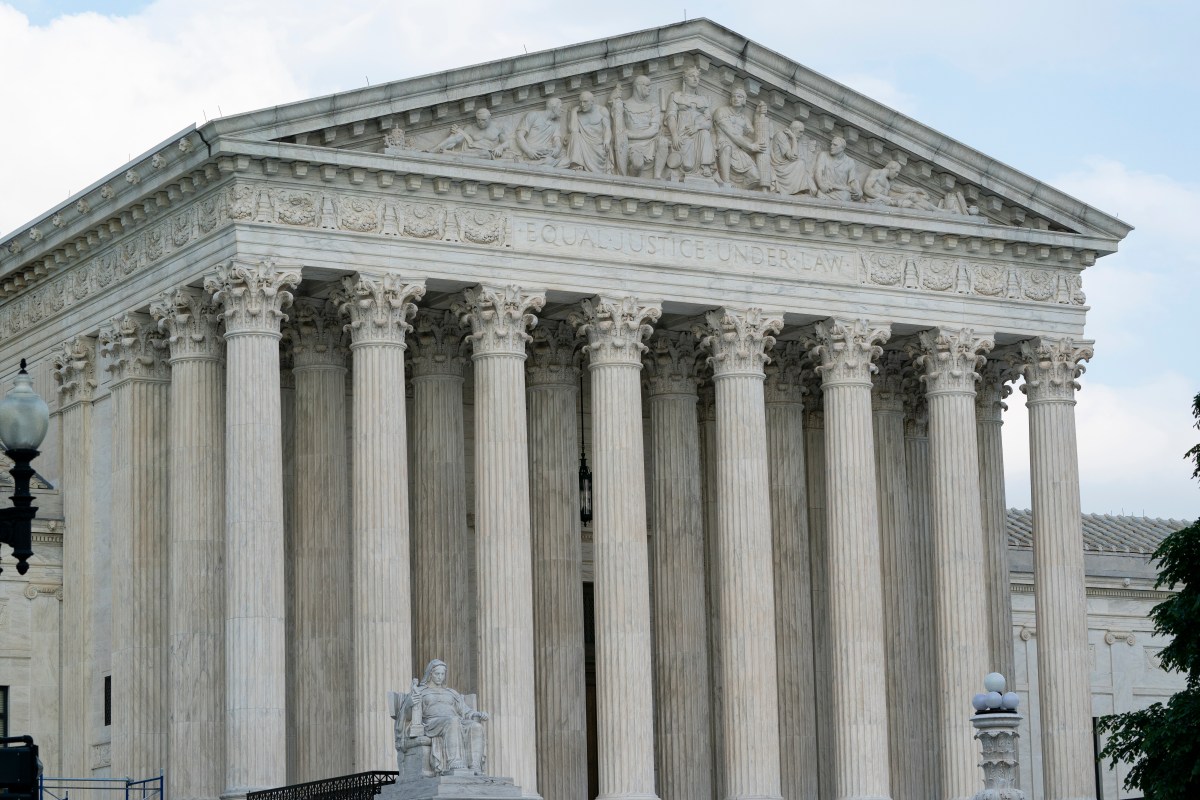The Supreme Court has given Donald Trump de facto immunity. No matter the ruling on presidential immunity, Trump cannot be tried before the election.
On Wednesday, it came down with two decisions, one on white-collar crime, Snyder v. United States, to which they turned a Nelsonian blind eye to a gratuity that was a bribe, the other Murthy v. Missouri, on curbing disinformation, which the majority likes, but which didn’t present a justiciable controversy. Snyder, involving the difference between a bribe and a gratuity, was a case where Justices Samuel Alito and Clarence Thomas should have recused themselves since they are public officials accepting extravagant gifts from persons having litigation interests before the court. As Justice Brett Kavanaugh, speaking for the majority, reflected in the understatement of the year: “gratuities [like bribes] can sometimes also raise ethical and appropriate concerns. “James Snyder, the former mayor of Portage, Indiana, population 37,926, awarded two contracts to a trash hauling company that purchased five trash trucks for about a million dollars. The following year, the company paid Snyder a purported “consulting fee” represented by a check to his order for $13,000, a sum above and beyond any gift limit set by any local government in the state. The jury convicted, and Snyder was sentenced to a year and nine months in prison.
Snyder was prosecuted under a federal statute, 18 U.S.C.§666(a)(B). He argued that the law criminalizes only bribes to state officials, not illegal gratuities, and courts up and down the line rejected his argument. Lower appellate courts had been divided on this issue. So, Snyder proceeded to get the government exactly where he wanted it, in front of the Supreme Court.
The issue before the Court was whether §666 criminalizes gratuities, i.e., payments in recognition of actions the official has already taken or committed to take.
The majority held that §666 criminalizes only bribery requiring payment in advance. Thus, the payment or the agreement to pay (courts have said the “promise to pay can be conveyed only by only a wink of the eye”) must precede the award of the corrupt contract.
The Court reasoned that since the payment to Snyder came after the corrupt official act, not before, and the payment was a tip or a gratuity, a thank you for a job well done, and not a bribe. Courts have understood the receipt of as a lesser included offense within the crime of bribery. But not this court. The crime of bribery, they held, requires a payment or an agreement to pay in exchange for an official act. And if the Snyders of the world can be punished for taking gratuities, it must be left to the states.
The conservative majority prides itself on being textualists, but the language of §666 targets grafting local officials who accept money intending to be “influenced or rewarded.” There is no requirement in the statutory language that the payment must precede the official act. That’s a bit of legislating from the bench.
The attitude of the conservative majority towards white-collar crime shocks the conscience. It was blatantly political. Justice Ketanji Brown Jackson sounded the alarm in dissent: “Snyder’s absurd and atextual reading of the statute is one only today’s court could love”—a veiled reference to their bankrupt thinking when they overruled Roe v. Wade of leaving a national problem to the states. And, lacking an enforceable code of ethics for Supreme Court justices, all that ethical judges can do is jaw. So, Jackson jawed in words unmistakably applicable to her brethren Thomas and Alito. “Officials who use their public positions for private gain threaten the integrity of our most important institutions.”
Come on, SCOTUS! My old boss, the legendary Manhattan District Attorney Bob Morgenthau, was fond of saying: “You cannot prosecute crime in the streets without prosecuting crime in the suites.”
In Murthy, the court saw the light dimly. Two states and five individual social media users sued various executive branch officials and agencies, claiming that the government pressured the platforms to censor their speech in violation of the First Amendment.
The issue came up during the pandemic when the government believed that Facebook and others were proliferating misinformation about the pandemic, like injecting bleach could save your life when, in fact, it could kill you. A federal agency contacted the platforms about election-related disinformation during the 2020 presidential election and the 2022 midterms.
The question was whether the plaintiffs had standing to bring the case in the first place. Article Three of the Constitution prohibits courts from deciding a case unless there is a justiciable controversy. It has been held that this is “fundamental” to the proper role of the judiciary. Although they often do, courts are supposed to restrain themselves from giving “neighborly advice.”
So, to have standing, at least one of the plaintiffs must sustain the heavy burden that he “suffered or will suffer, an injury that is ‘concrete, particularized, and actual or imminent; fairly traceable to the challenged action; and redressable by a favorable ruling.’”
The First Amendment is a restraint on state, not private actions, and the social media platforms are private entities. However, plaintiffs claimed that the participation of the government in the decisions not to publish disinformation or misinformation of a certain kind made the restraint state action violative of the First Amendment. So, the plaintiffs’ theory was not to enjoin the platforms since they have the absolute right to post or not to post but to enjoin the government from participating in the “censoring” decisions. The majority, which comprised the liberal three, was joined by Chief Justice John Roberts, Justice Amy Coney Barrett, and Kavanaugh, who wrote the opinion concluding that none of the plaintiffs had standing.
The decision was correct, and the only astonishing thing about it was the supremely partisan dissent led by Alito, Thomas, and Justice Neil Gorsuch. Alito, who has rigorously applied standing requirements against liberal plaintiffs and liberally applied them against conservative plaintiffs, called the case “one of the most important free speech cases to reach the court in years.” In purporting to weigh whether plaintiffs had standing, he reached the merits because he likes disinformation that might bring down the establishment elite. His test for standing was the facetious remark of the late U.S. Senator and Supreme Court Justice Hugo Black: “Of course, he has standing. He is standing right here.”
But the case still has life, although it has grown a beard. The court simply kicked the can down the road. I don’t think the next one will be hung up on a legal technicality.
Bottom line: Not so hot a day for the good guys.



